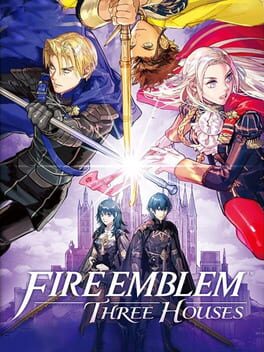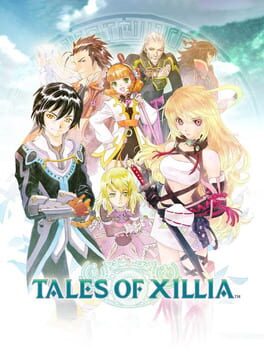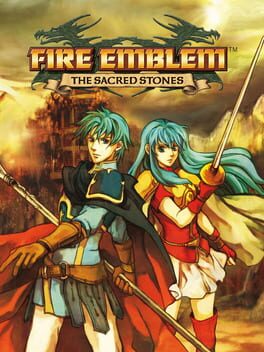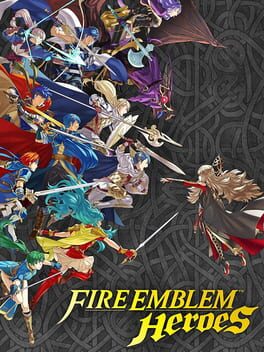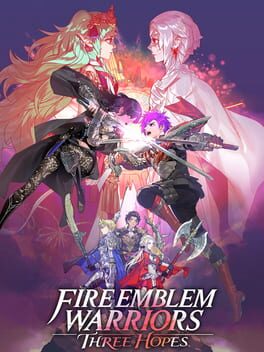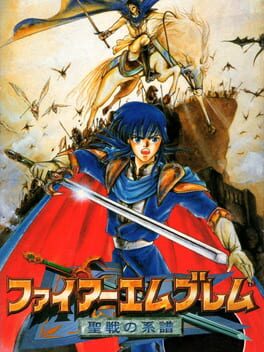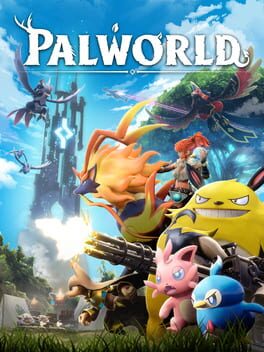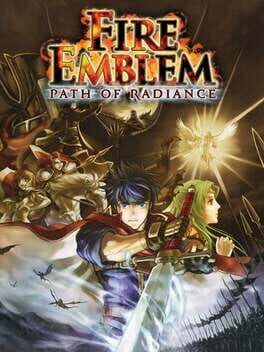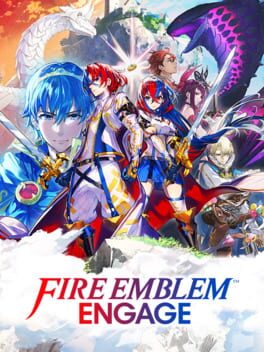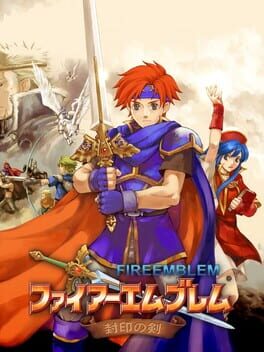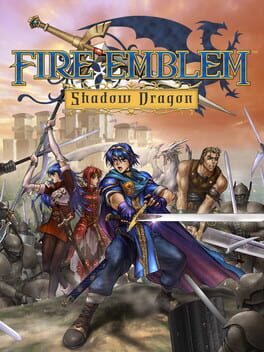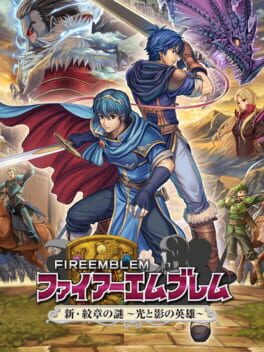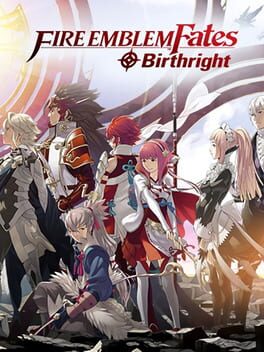CozmicKoala
This review contains spoilers
Ultimately, I had a very fun experience with this game, and I would likely give it another playthrough at some point. However, I do have a few gripes that bring this game down for me.
Overall, my biggest issue with this game is that I feel that they did not properly balance Miles' role as a co-protagonist with Peter. Peter has a much greater role in the overall conflict compared to Miles, and this really begins to show during the second arc of the game.
This is especially true for the final act of the game with Venom. Miles ultimately has no stake in the major conflict of the game, as he was given minimal interaction with Harry Osborn throughout the story. This is very disappointing to me, as I feel that Miles could have easily had a much bigger role in the narrative had the game spent time developing a relationship between him and Harry.
I also felt that it made very little sense for a character like Kraven to have a whole army of goons that served him. While I understand that part of the reasoning for this is to create a larger variety of enemies for the Spider-Men to fight, I feel that it took me out of the experience slightly due to my familiarity with the comics.
I would still recommend this game to anyone looking to experience the continued story of the Insomniac Spider-Men. However, I would say that this game is weaker narratively comparatively to its predecessor.
Overall, my biggest issue with this game is that I feel that they did not properly balance Miles' role as a co-protagonist with Peter. Peter has a much greater role in the overall conflict compared to Miles, and this really begins to show during the second arc of the game.
This is especially true for the final act of the game with Venom. Miles ultimately has no stake in the major conflict of the game, as he was given minimal interaction with Harry Osborn throughout the story. This is very disappointing to me, as I feel that Miles could have easily had a much bigger role in the narrative had the game spent time developing a relationship between him and Harry.
I also felt that it made very little sense for a character like Kraven to have a whole army of goons that served him. While I understand that part of the reasoning for this is to create a larger variety of enemies for the Spider-Men to fight, I feel that it took me out of the experience slightly due to my familiarity with the comics.
I would still recommend this game to anyone looking to experience the continued story of the Insomniac Spider-Men. However, I would say that this game is weaker narratively comparatively to its predecessor.
For reference, I have played through each route of this game at least once and have completed it on Maddening difficulty.
This is a game that I loved on release but began to sour on over time. Is it a good game? I would say so. But I believe there are so many little things that add up for me that end up diminishing the experience.
Narratively, this is probably the some of the most ambitious story-telling that has been attempted in any Fire Emblem game. The game has an immense amount of world-building to setup the eventual political struggles that take place. While I enjoyed the amount of world-building in this game, I do think that it could become overwhelming to some players that aren't prepared for the scope of it all. I also think that some of the routes, namely Crimson Flower, fails in certain aspects that ultimately drag it down for me. Some of these issues are resolved in the spin-off, Three Hopes, but I do wish that a spin-off wasn't needed to resolve those issues.
The cast itself is quite enjoyable overall, and there are numerous different sides to each character that you might only glimpse in certain support chains, which I felt pushed me to complete as many for each character as possible across all of my playthroughs.
The gameplay is the biggest issue I have with this particular Fire Emblem entry. I believe the difficulty settings of the game are poorly balanced overall, with Normal and Hard both being very easy (Normal almost mind-numbingly so), and Maddening feeling excessively difficult. While I can appreciate Normal for being a good difficulty option for those primarily interested in the narrative, I believe Hard isn't much more difficult than Normal. Maddening is such a leap in difficulty compared to Hard to the point where I would argue it is unfair at times, namely for some of the Monster bosses players will have to fight on some maps.
The map design was enjoyable for my first playthrough, but it quickly became dull as I realized all of the routes shared multiple maps with each other, and I found that my differing unit selection did not do much to change how I approached them. In an interview with the developers, they stated that while they recognized this was an issue, they thought it was fine as they believed most players would only do a single playthrough of the game and learn about the rest of the routes online. While that certainly happened to a degree, I also feel that its rather lazy to have such similar map selections for each route.
The game is also incredibly easy to break thanks to the added Battalion mechanic. While I appreciate the addition of the Battalion mechanic to make the battles truly feel like larger scale conflicts, many of the abilities they provide are hilariously broken, to a point where several maps' mechanics can be ignored entirely.
There is more I could have touched on in each individual route, but this sums up many of the feelings I have about the game overall.
I think for many it could serve as a good entry point into the Fire Emblem series, but I would also note that compared to many other entries in the series, it is a bit of anomaly with scope of its narrative and world-building. While I enjoyed my time with this game, I believe it will be a long time before I would even think of attempting another playthrough.
This is a game that I loved on release but began to sour on over time. Is it a good game? I would say so. But I believe there are so many little things that add up for me that end up diminishing the experience.
Narratively, this is probably the some of the most ambitious story-telling that has been attempted in any Fire Emblem game. The game has an immense amount of world-building to setup the eventual political struggles that take place. While I enjoyed the amount of world-building in this game, I do think that it could become overwhelming to some players that aren't prepared for the scope of it all. I also think that some of the routes, namely Crimson Flower, fails in certain aspects that ultimately drag it down for me. Some of these issues are resolved in the spin-off, Three Hopes, but I do wish that a spin-off wasn't needed to resolve those issues.
The cast itself is quite enjoyable overall, and there are numerous different sides to each character that you might only glimpse in certain support chains, which I felt pushed me to complete as many for each character as possible across all of my playthroughs.
The gameplay is the biggest issue I have with this particular Fire Emblem entry. I believe the difficulty settings of the game are poorly balanced overall, with Normal and Hard both being very easy (Normal almost mind-numbingly so), and Maddening feeling excessively difficult. While I can appreciate Normal for being a good difficulty option for those primarily interested in the narrative, I believe Hard isn't much more difficult than Normal. Maddening is such a leap in difficulty compared to Hard to the point where I would argue it is unfair at times, namely for some of the Monster bosses players will have to fight on some maps.
The map design was enjoyable for my first playthrough, but it quickly became dull as I realized all of the routes shared multiple maps with each other, and I found that my differing unit selection did not do much to change how I approached them. In an interview with the developers, they stated that while they recognized this was an issue, they thought it was fine as they believed most players would only do a single playthrough of the game and learn about the rest of the routes online. While that certainly happened to a degree, I also feel that its rather lazy to have such similar map selections for each route.
The game is also incredibly easy to break thanks to the added Battalion mechanic. While I appreciate the addition of the Battalion mechanic to make the battles truly feel like larger scale conflicts, many of the abilities they provide are hilariously broken, to a point where several maps' mechanics can be ignored entirely.
There is more I could have touched on in each individual route, but this sums up many of the feelings I have about the game overall.
I think for many it could serve as a good entry point into the Fire Emblem series, but I would also note that compared to many other entries in the series, it is a bit of anomaly with scope of its narrative and world-building. While I enjoyed my time with this game, I believe it will be a long time before I would even think of attempting another playthrough.
2011
As my third entry into the Tales of Series, I found this one quickly becoming my favorite.
The cast of this game is wonderful, and I found myself enjoying each party member and what they were able to contribute overall to the group's dynamic. Surprisingly, I grew to like Alvin the most out of this cast, but all of the characters are enjoyable in their own right. This is especially true for the villains of the game, and I feel that the game does a great job of establishing them. However, I do feel that some characters, like Leia, could have used a bit more focus throughout the narrative.
The gameplay was fun, especially when I started getting used to the Linking system. I also enjoyed all of the character's unique combat mechanics, especially Milla's Spirit Shift. Each battle felt quick and satisfying, which was greatly appreciated given the format.
However, I still do have my issues with this game. Some of the character's arcs did not feel fully resolved by the end of the game for me. This was especially true for Leia. I also believe the game could have explored some of Elise's story more.
Some parts of the games closing act felt a bit too rushed, and I think that it caused the ending to feel a bit less conclusive. I also do think that some of the late game areas are rather underwhelming to explore.
One of the most frustrating aspects of the game for me involved the numerous highroads that the player must traverse to reach many of the towns and cities throughout the game. Many of these areas appear to be reskins of each other, which eventually began to make going through these areas a bit boring. It's especially baffling when the game is capable of having beautiful and unique cities like Fennmont, and yet the numerous highroads have little to make them distinct.
Finally, I think the Coliseum in this game is incredibly frustrating to play since a player can lose a battle by simply getting knocked out of the arena. It is even more frustrating when some boss fights that take place in the arena will add barricades to prevent the player from falling off.
Overall, I would recommend this game to anyone who is interested in giving it a try. I do think this game would benefit from an enhanced version with better graphics at some point in the future, but this version is still great in its own right.
The cast of this game is wonderful, and I found myself enjoying each party member and what they were able to contribute overall to the group's dynamic. Surprisingly, I grew to like Alvin the most out of this cast, but all of the characters are enjoyable in their own right. This is especially true for the villains of the game, and I feel that the game does a great job of establishing them. However, I do feel that some characters, like Leia, could have used a bit more focus throughout the narrative.
The gameplay was fun, especially when I started getting used to the Linking system. I also enjoyed all of the character's unique combat mechanics, especially Milla's Spirit Shift. Each battle felt quick and satisfying, which was greatly appreciated given the format.
However, I still do have my issues with this game. Some of the character's arcs did not feel fully resolved by the end of the game for me. This was especially true for Leia. I also believe the game could have explored some of Elise's story more.
Some parts of the games closing act felt a bit too rushed, and I think that it caused the ending to feel a bit less conclusive. I also do think that some of the late game areas are rather underwhelming to explore.
One of the most frustrating aspects of the game for me involved the numerous highroads that the player must traverse to reach many of the towns and cities throughout the game. Many of these areas appear to be reskins of each other, which eventually began to make going through these areas a bit boring. It's especially baffling when the game is capable of having beautiful and unique cities like Fennmont, and yet the numerous highroads have little to make them distinct.
Finally, I think the Coliseum in this game is incredibly frustrating to play since a player can lose a battle by simply getting knocked out of the arena. It is even more frustrating when some boss fights that take place in the arena will add barricades to prevent the player from falling off.
Overall, I would recommend this game to anyone who is interested in giving it a try. I do think this game would benefit from an enhanced version with better graphics at some point in the future, but this version is still great in its own right.
Arguably the easiest game in the Fire Emblem series, even on its highest difficulty. Sacred Stones is a beloved entry for many people, due to its solid cast, good map design, a decent narrative, and a surprisingly tragic antagonist. The sprite work is also quite good, and the game has a number of memorable tracks.
This game is split into two separate paths, following the player's choice of the twin protagonists, Eirika and Ephraim. Eirika's route is recommended to complete first due to focusing more on the narrative, while I would argue Ephraim's route is a bit better in terms of gameplay.
For those interested in jumping into the Fire Emblem series, this is probably one of my favorites to recommend. Its low difficulty, combined with its mix of modern and older mechanics, make it very accessible for those who want to go further back in the series or try their hand at later entries after finishing this one.
This game is split into two separate paths, following the player's choice of the twin protagonists, Eirika and Ephraim. Eirika's route is recommended to complete first due to focusing more on the narrative, while I would argue Ephraim's route is a bit better in terms of gameplay.
For those interested in jumping into the Fire Emblem series, this is probably one of my favorites to recommend. Its low difficulty, combined with its mix of modern and older mechanics, make it very accessible for those who want to go further back in the series or try their hand at later entries after finishing this one.
2017
Surprisingly, this game was fairly enjoyable for me for a long time for its character building. Compared to other gacha games, it is also a fair bit more generous compared to many others.
Recently, I've found myself to be quite bored with it and have only been playing every so often. A large part of this is due to the absurd levels of powercreep that are currently occurring in the game, with nothing being done to try mitigating it. Despite having not played the game as frequently in the last year, I still have no difficulty clearing any of the newer content in the game.
That said, I do appreciate that it has brought a lot of characters from older FE games to the forefront, and it is nice to be able to see many of these characters after being unacknowledged for years.
If you're an absolute diehard superfan of the Fire Emblem series, give it a go. But I don't know that I can recommend this mess to anyone else.
Recently, I've found myself to be quite bored with it and have only been playing every so often. A large part of this is due to the absurd levels of powercreep that are currently occurring in the game, with nothing being done to try mitigating it. Despite having not played the game as frequently in the last year, I still have no difficulty clearing any of the newer content in the game.
That said, I do appreciate that it has brought a lot of characters from older FE games to the forefront, and it is nice to be able to see many of these characters after being unacknowledged for years.
If you're an absolute diehard superfan of the Fire Emblem series, give it a go. But I don't know that I can recommend this mess to anyone else.
This spin-off to Fire Emblem: Three Houses features an alternate-universe in which the main character of Three Houses, Byleth, never arrives at Garreg Mach Monastery, and is instead replaced by a new character, Shez.
Compared to Byleth, I found Shez to be much more enjoyable as a character, and they have many fun interactions with the already-solid cast of Three Houses.
The game itself provides resolution to many plot threads from Three Houses, and is also able to show many interactions between characters that we never saw before.
The gameplay itself is surprisingly addicting, and each character has numerous fun builds available to them. However, it can get rather repetitive, especially for players who are attempting to clear each story route within the game.
The soundtrack for this game is also fantastic, containing several great remixes of tracks from Three Houses while also having a number of new ones that are also great.
For me, the biggest flaw of this game has to do with its new narrative. While it does resolve some hanging plot threads from Three Houses, there are a few things and one major event that is left mostly unresolved by the end of each story route, with none of the routes actually providing a full explanation. Some of the story routes also feel underwhelming or lack a clear resolution to the main conflict. While the developers have gone on record to say that they didn't want to create route endings that were "better" than Three Houses, I truly wish they would have gone all the way with their ideas with this alternate universe to the main Three Houses timeline.
If you were a fan of Three Houses, I think this game is certainly worth a try, or is at least worth watching a playthrough of. Otherwise, I would abstain from touching this game until you have experienced Three Houses at least once. For those looking for a more ambitious title that fully explored the "what if..?" scenario set up by this game, then I think they will be disappointed.
Compared to Byleth, I found Shez to be much more enjoyable as a character, and they have many fun interactions with the already-solid cast of Three Houses.
The game itself provides resolution to many plot threads from Three Houses, and is also able to show many interactions between characters that we never saw before.
The gameplay itself is surprisingly addicting, and each character has numerous fun builds available to them. However, it can get rather repetitive, especially for players who are attempting to clear each story route within the game.
The soundtrack for this game is also fantastic, containing several great remixes of tracks from Three Houses while also having a number of new ones that are also great.
For me, the biggest flaw of this game has to do with its new narrative. While it does resolve some hanging plot threads from Three Houses, there are a few things and one major event that is left mostly unresolved by the end of each story route, with none of the routes actually providing a full explanation. Some of the story routes also feel underwhelming or lack a clear resolution to the main conflict. While the developers have gone on record to say that they didn't want to create route endings that were "better" than Three Houses, I truly wish they would have gone all the way with their ideas with this alternate universe to the main Three Houses timeline.
If you were a fan of Three Houses, I think this game is certainly worth a try, or is at least worth watching a playthrough of. Otherwise, I would abstain from touching this game until you have experienced Three Houses at least once. For those looking for a more ambitious title that fully explored the "what if..?" scenario set up by this game, then I think they will be disappointed.
Fire Emblem: Genealogy of the Holy War is an old but beloved game by many veterans of the Fire Emblem series. This is a game that is good in its own right, but really shows its age as you play it.
Without going into too much detail, Genealogy of the Holy War introduces a number of mechanics that will take some adjustment for any player, even if they are experienced with other games in the series. This is also the first game in the series to feature child units, alongside inheritance for those child units. This game also introduces the skills and support systems that have since become staples of the franchise. The maps of this game are also incredibly large, and there are only 12 chapters to playthrough because of it. In spite of this, Genealogy of the Holy War still fits in a great deal of lore and story in those 12 chapters.
Much of the praise of this game is centered around its narrative, which is typically praised as having one of the best in the series. While there are certain aspects of the narrative that have not aged well, it still has some great emotional and tragic moments. Both of the main characters, Sigurd and Seliph, have great moments, with Sigurd serving as a great tragic protagonist during his arc of the story. It also has a strong antagonist, but also features some typical plot elements for the series that more experienced players will have come to expect.
This game has a surprising amount of worldbuilding, and those who have played Fire Emblem: Three Houses will likely recognize the similar elements that inspired the lore in Three Houses.
While the age and mechanics of this game will turn many away, I think this is a game that might be worth trying for those interested. However, there is a high chance that this game will receive a remake in the near future, so it may be best to wait for that to arrive rather than playing this version of the game.
Without going into too much detail, Genealogy of the Holy War introduces a number of mechanics that will take some adjustment for any player, even if they are experienced with other games in the series. This is also the first game in the series to feature child units, alongside inheritance for those child units. This game also introduces the skills and support systems that have since become staples of the franchise. The maps of this game are also incredibly large, and there are only 12 chapters to playthrough because of it. In spite of this, Genealogy of the Holy War still fits in a great deal of lore and story in those 12 chapters.
Much of the praise of this game is centered around its narrative, which is typically praised as having one of the best in the series. While there are certain aspects of the narrative that have not aged well, it still has some great emotional and tragic moments. Both of the main characters, Sigurd and Seliph, have great moments, with Sigurd serving as a great tragic protagonist during his arc of the story. It also has a strong antagonist, but also features some typical plot elements for the series that more experienced players will have come to expect.
This game has a surprising amount of worldbuilding, and those who have played Fire Emblem: Three Houses will likely recognize the similar elements that inspired the lore in Three Houses.
While the age and mechanics of this game will turn many away, I think this is a game that might be worth trying for those interested. However, there is a high chance that this game will receive a remake in the near future, so it may be best to wait for that to arrive rather than playing this version of the game.
2024
Personally, I feel that this is the definitive version of Persona 3. Having played both FES and Portable, I feel like Reload fully encapsulated the best aspects of both, while adding a good amount of additional content that I enjoyed.
One of the new aspects that especially stood out to me were the brand-new Linked Episodes that they gave the male party members throughout the story. Given that these characters did not have as many interactions in FES, I greatly appreciated the opportunity to see how the male party members grew throughout the narrative. This is especially the case for Shinjiro, who got very little screentime outside of Persona 3 Portable and the Persona Q spin-offs.
I felt like that overall, the Social Links were greatly improved by having them be fully voiced in this game. For me, it added a lot more life to the game, and helped me become more invested in the characters. However, one change that I wish they had made was to properly adjust the female Social Links to better accommodate the new platonic routes in this version. I found it very jarring to have some of the female characters still bring up topics from their romantic routes despite having friend-zoned them. Additionally, I felt that some of the Social Links were oddly structured, as some of them will have little to no development of the focal character throughout the link, and then they will have a sudden revelation that addresses all of their flaws in the final rank. This is especially evident with the Moon Arcana Social Link. Some of the characters for these Links also do not feel like they develop, or even come to recognize their flaws by the end of their character arcs.
However, I believe the best change to this game would be the new iteration of Tartarus. I believe the changes helped to make Tartarus much less tedious to explore, and I appreciated the visual enhancements to each of the unique blocks. Many of the new additions to Tartarus helped to make it less grindy, and made it easier to use multiple party members within a playthrough, despite EXP not being shared across all of them.
Overall, I would be certain to recommend this particular version of the game to anyone who is interested in experiencing Persona 3 for themselves.
One of the new aspects that especially stood out to me were the brand-new Linked Episodes that they gave the male party members throughout the story. Given that these characters did not have as many interactions in FES, I greatly appreciated the opportunity to see how the male party members grew throughout the narrative. This is especially the case for Shinjiro, who got very little screentime outside of Persona 3 Portable and the Persona Q spin-offs.
I felt like that overall, the Social Links were greatly improved by having them be fully voiced in this game. For me, it added a lot more life to the game, and helped me become more invested in the characters. However, one change that I wish they had made was to properly adjust the female Social Links to better accommodate the new platonic routes in this version. I found it very jarring to have some of the female characters still bring up topics from their romantic routes despite having friend-zoned them. Additionally, I felt that some of the Social Links were oddly structured, as some of them will have little to no development of the focal character throughout the link, and then they will have a sudden revelation that addresses all of their flaws in the final rank. This is especially evident with the Moon Arcana Social Link. Some of the characters for these Links also do not feel like they develop, or even come to recognize their flaws by the end of their character arcs.
However, I believe the best change to this game would be the new iteration of Tartarus. I believe the changes helped to make Tartarus much less tedious to explore, and I appreciated the visual enhancements to each of the unique blocks. Many of the new additions to Tartarus helped to make it less grindy, and made it easier to use multiple party members within a playthrough, despite EXP not being shared across all of them.
Overall, I would be certain to recommend this particular version of the game to anyone who is interested in experiencing Persona 3 for themselves.
2024
I don't have too much to say about this one. While I was actively playing it, I found it to be annoyingly buggy at times, which limited my enjoyment. Additionally, were it not for the fact that I was playing with a large group of friends, I likely would have not spent as much time in the game as I did.
The gameplay was enjoyable, but the numerous bugs with the gameplay ultimately proved too frustrating for me, and removed my incentive to continue.
The gameplay was enjoyable, but the numerous bugs with the gameplay ultimately proved too frustrating for me, and removed my incentive to continue.
Path of Radiance is easily my favorite game in the entire Fire Emblem series.
While it certainly has its flaws, such as the combat animations taking a long time, or an infamous 3-par chapter, I do think it still holds up decently by modern standards. The game itself isn't terribly difficult either, and relatively accessible by old and new players alike.
The cast itself is pretty good overall, although some characters get very little to work with, even in their support chains.
The biggest selling point of Path of Radiance for me is its narrative. I would argue it has one of the best narratives of any Fire Emblem game, and there is a good amount of world-building to help players get invested in the conflicts of this world. There are also a number of great emotional moments, on top of having one of the best antagonist/rival characters in the series in the Black Knight. Ike serves as a fantastic main character, and this game helped to cement him as one of my favorite characters ever. Many of the other major characters, such as Soren, Elincia, and Tibarn are also fantastic for me and are able to bring a lot to the narrative.
I cannot recommend this game enough to anyone who is interested.
While it certainly has its flaws, such as the combat animations taking a long time, or an infamous 3-par chapter, I do think it still holds up decently by modern standards. The game itself isn't terribly difficult either, and relatively accessible by old and new players alike.
The cast itself is pretty good overall, although some characters get very little to work with, even in their support chains.
The biggest selling point of Path of Radiance for me is its narrative. I would argue it has one of the best narratives of any Fire Emblem game, and there is a good amount of world-building to help players get invested in the conflicts of this world. There are also a number of great emotional moments, on top of having one of the best antagonist/rival characters in the series in the Black Knight. Ike serves as a fantastic main character, and this game helped to cement him as one of my favorite characters ever. Many of the other major characters, such as Soren, Elincia, and Tibarn are also fantastic for me and are able to bring a lot to the narrative.
I cannot recommend this game enough to anyone who is interested.
2023
I can confidently say that Fire Emblem Engage has some of the most enjoyable gameplay in the series for me.
The game is incredibly well-polished, and I appreciate it being well-balanced around the Emblems (barring Micaiah). The story is pretty basic by Fire Emblem-standards but has some great moments. I also appreciate Alear not being a silent protagonist, as I have felt that many of the Avatar characters, barring Robin and Shez, have taken away from the narrative of their games to some degree.
This game was made as a celebration of the series' 30th anniversary, and obviously has several references to all the entries that came previously. However, playing all the previous entries is by no means a requirement for Engage to be an enjoyable experience. Similarly, I could not recommend this game to someone who is looking to jump into the Fire Emblem series for the aforementioned reasons.
I have also seen many people criticize the cast for being rather one-note, but I disagree with this sentiment quite a bit. Many of the characters have unique sides to them that are only seen during specific support chains, so I recommend completing as many of them as possible.
Overall, I greatly enjoyed my time with Engage, and I appreciate the numerous ways there are to approach each map in the game. It could definitely use some more Warp staves throughout the game though.
The game is incredibly well-polished, and I appreciate it being well-balanced around the Emblems (barring Micaiah). The story is pretty basic by Fire Emblem-standards but has some great moments. I also appreciate Alear not being a silent protagonist, as I have felt that many of the Avatar characters, barring Robin and Shez, have taken away from the narrative of their games to some degree.
This game was made as a celebration of the series' 30th anniversary, and obviously has several references to all the entries that came previously. However, playing all the previous entries is by no means a requirement for Engage to be an enjoyable experience. Similarly, I could not recommend this game to someone who is looking to jump into the Fire Emblem series for the aforementioned reasons.
I have also seen many people criticize the cast for being rather one-note, but I disagree with this sentiment quite a bit. Many of the characters have unique sides to them that are only seen during specific support chains, so I recommend completing as many of them as possible.
Overall, I greatly enjoyed my time with Engage, and I appreciate the numerous ways there are to approach each map in the game. It could definitely use some more Warp staves throughout the game though.
Fire Emblem: The Binding Blade is a game that attracts many people due to the popularity of the protagonist, Roy, in the Super Smash Bros. series. However, this is a game that is likely to be very difficult for anyone looking to enter the series with.
The Binding Blade is an entry that heavily favors an aggressive playstyle, which makes it beloved by some people, and hated by others. For those who know what to expect, this can lead to a very enjoyable, albeit challenging experience. For those I have known who were unprepared, they often dropped the game after becoming frustrated with this design.
Narratively, I don't think this game is particularly notable outside of its main antagonist, Zephiel. It is fine for what it is, but I don't think it is amazing by any means.
If you are interested in it, give it a try! Just keep the difficulty of the game in mind if you aren't as experienced with the Fire Emblem series.
The Binding Blade is an entry that heavily favors an aggressive playstyle, which makes it beloved by some people, and hated by others. For those who know what to expect, this can lead to a very enjoyable, albeit challenging experience. For those I have known who were unprepared, they often dropped the game after becoming frustrated with this design.
Narratively, I don't think this game is particularly notable outside of its main antagonist, Zephiel. It is fine for what it is, but I don't think it is amazing by any means.
If you are interested in it, give it a try! Just keep the difficulty of the game in mind if you aren't as experienced with the Fire Emblem series.
This entry is a bit of a mixed bag for me. On one hand, the game has some enjoyable gameplay aspects, such as how hilarious powerful the Warp Staff is, and the Ballistician class being surprisingly fun to play around with. On the other hand, I find many of the maps to be boring, and many of the characters still lack any strong characterization beyond the most basic of traits.
I also loathe having to use Marth in this game. I don't understand why they decided it would be a good idea to make him unable to promote, but it cements him as one of, if not the weakest Lord character in the series.
This game is probably still better to play over the original Shadow Dragon and the Blade of Light, and it does a nice job with Marth's story. Besides that, I find this game to be a very boring entry.
I also loathe having to use Marth in this game. I don't understand why they decided it would be a good idea to make him unable to promote, but it cements him as one of, if not the weakest Lord character in the series.
This game is probably still better to play over the original Shadow Dragon and the Blade of Light, and it does a nice job with Marth's story. Besides that, I find this game to be a very boring entry.
Fire Emblem: New Mysetery of the Emblem introduces a lot of the mechanics that we have grown accustomed to in more modern games. The game itself, is massive, with a whopping cast of over 80 playable characters. However, similarly to Fire Emblem: Shadow Dragon, this game still lacks strong characterization for everyone outside of a select few major characters.
This game adds an additional story beat with the addition of Katarina and her group. I personally enjoyed the content with Katarina a good bit, and didn't feel that it hurt the original narrative with its addition. However, the rest of the story is rather barebones.
This game is the first Fire Emblem entry to feature an Avatar character to try making the player feel more invested in the narrative. How the Avatar character is implemented does take away from the game in my opinion, as Kris is treated as this perfect character that no one can find any fault in.
The gameplay itself is more player-phased oriented, and it is more enjoyable in comparison to the previous Shadow Dragon. I think this game is certainly worth a try for those interested, but Shadow Dragon should be played for the best experience.
This game adds an additional story beat with the addition of Katarina and her group. I personally enjoyed the content with Katarina a good bit, and didn't feel that it hurt the original narrative with its addition. However, the rest of the story is rather barebones.
This game is the first Fire Emblem entry to feature an Avatar character to try making the player feel more invested in the narrative. How the Avatar character is implemented does take away from the game in my opinion, as Kris is treated as this perfect character that no one can find any fault in.
The gameplay itself is more player-phased oriented, and it is more enjoyable in comparison to the previous Shadow Dragon. I think this game is certainly worth a try for those interested, but Shadow Dragon should be played for the best experience.
There's not much I have to say about this entry in all honesty. I have never gone back to replay it after my first playthrough, simply because there was nothing that enticed me to do so.
The story is pretty straightforward, and probably the best handled out of the different routes of Fates? That's not to say that it has a good story or anything, but it at least isn't the convoluted mess that is Revelations, and lacks the stupidity of Conquest.
The gameplay is pretty straightforward. Even on its highest difficulty, the game doesn't really get much harder, unless you consider having weak enemy reinforcements thrown at your strong units to be difficult.
I don't know if I'd even recommend playing this entry to someone? I think it's pretty forgettable overall, which might be for the best.
The story is pretty straightforward, and probably the best handled out of the different routes of Fates? That's not to say that it has a good story or anything, but it at least isn't the convoluted mess that is Revelations, and lacks the stupidity of Conquest.
The gameplay is pretty straightforward. Even on its highest difficulty, the game doesn't really get much harder, unless you consider having weak enemy reinforcements thrown at your strong units to be difficult.
I don't know if I'd even recommend playing this entry to someone? I think it's pretty forgettable overall, which might be for the best.

